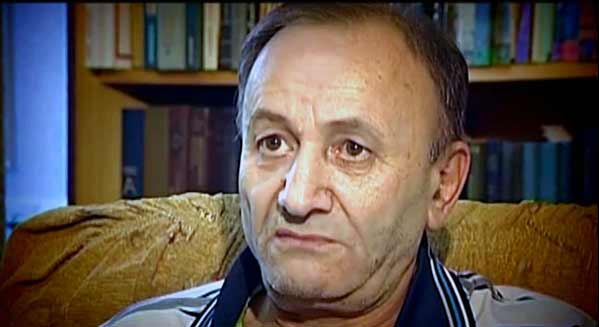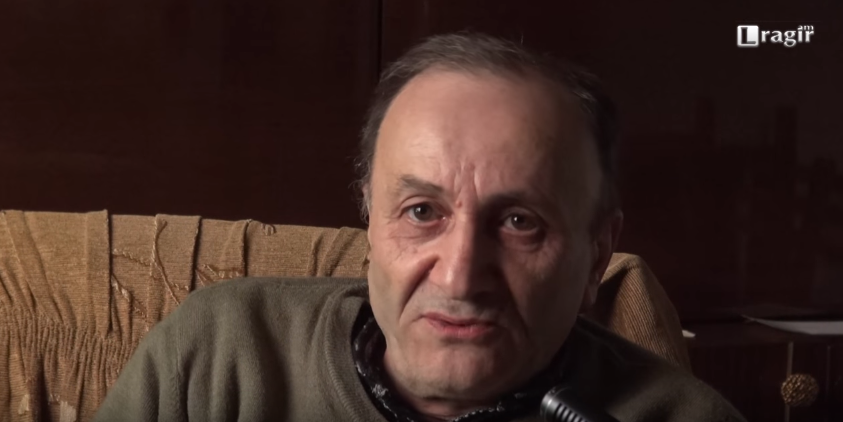Civilian Control of the Military is not just a Concern of Democracies

Peace Dialogue NGO continues its series of interviews on the issue of human rights violations in the armed forces. This time the interview was conducted with Martin Zapfe, Doctor of Political Science, and senior researcher at the Center for Security Studies (CSS) at ETH Zurich, Switzerland. In his position at CSS he is the head of the Global Security Team comprised of researchers working on international security challenges. German by birth, he is an officer in the German Army Reserve.
In the framework of this project which is aimed at raising awareness about the effective protection of human rights in general but more specifically about the protection of human rights in the armed forces, the topic of the interview with Dr. Zapfe is militarization and its consequences and impact on the country’s political and social life as well as on its security. Additional questions were asked in order to know the international expert’s opinion on a number of worrying issues in the RA Armed Forces, particularly the human rights violations and fatalities in the military and the Ministry of Defense’s decision on total encryption of any information regarding the Armed Forces.
What do you think are the distinguishing features of militarization? In what cases is the country or its society considered to be militarized or prone to be militarized?
Militarization per se is hard to define; I think it is best understood as a prevalence for “military” values in civilian life – and, quite simply, of whether a military career, or at least military service, is a de facto prerequisite for success in the civilian sphere. In addition, the militarization of politics implies an undue importance of the military in formulating policies, and/or in the influencing of civilian decision makers, and society, in making decisions about those policies. This does not necessarily have to be confined to military matters, to the contrary: understanding non-military political questions as militarily essential, and claiming a say, might be considered a distinguishing feature of militarization.
Which are the positive, negative or dangerous aspects of militarization?
From a democratic point of view, militarization cannot be in itself positive. However, it may be a side effect of political necessities – think of a democracy born in war, like the State of Israel in 1948 – and it might, under certain circumstances, not have distinctively negative consequences. Again, think of Israel: especially in the first decades of its existence, virtually the whole society was under arms and attached to the armed forces. In this case, over a period of decades the senior leadership largely recruited itself from those who had served and succeeded in the armed forces without calling into question the democratic character of the country, and the subordination of the army under the political, civilian leadership. From this perspective, the upside of a militarized society can be an increased military effectiveness, however hard to define this may be, as large swathes of the population serve in the active army or its reserves, and agree to subordinate many other issues under the priority of a strong and ready military.
The downside is that, historically speaking, such a militarization has shown to be potentially unhealthy for public debate within a society, for deciding on the political agenda beyond “hard power” solutions, and for agreeing at what point other issues – social, economic – should be addressed at a cost to the military. If a country is “militarized” in the above mentioned sense, then this debate is likely to suffer from a certain imbalance, to put it carefully. The military is an instrument of the state; it must, in the long term, not decide which policies the state should adopt. However, this is not an infrequent phenomenon.
What do you feel is the role of democratic governance and democratic institutions in reining in the militarization of a country? Can you bring any successful and unsuccessful examples?
First, as Samuel P. Huntington (American sociologist and political scientist, the author of the theory of The Clash of Civilizations) pointed out in the 1950s, civilian control of the military is not just a concern of democracies. To the contrary: undemocratic systems, due to their regular lack of inherent legitimacy, are often especially vulnerable to military disobedience or even coups.
However, it is hard to conceive of a stable, democratic country without functioning civil-military relations. Yet to reach those functioning relations, there simply is no silver bullet, since many of the determinants are historical, societal, or cultural in nature. At the very least, it seems very unlikely that a state that finds itself constantly engaged in war, and constantly under threat, could succeed in subordinating the military under the civilian leadership – if there is any real “civilian” leadership, and not just generals-turned-president like you see in Egypt. Functioning civil-military relations seem most likely when the state, and the state’s civilian leadership, appear to have an inherent legitimacy that leaves no doubt to anyone within or outside of the military that the military exists to serve this state, to serve this legitimate government – whether it is a king, an aristocracy, or a democratic government, or a mixture of those. Yet you cannot create legitimacy from scratch – and you cannot do it just through “good governance”.
Most efforts to transform the military in unstable states begin with the template of making the military more “democratic” – to “civilize the military”, to use Huntington’s words – without addressing the fundamental question of whether this democracy, indeed the state itself, has any legitimacy of its own. More promising, if less fashionable and not in harmony with the “Zeitgeist” (the defining spirit or mood of a particular period of history), seem to be efforts to professionalize the military – again, quoting Huntington, to “militarize the military”: Get the generals out of the economy, get them out of politics, but make the professionals, well-paid professionals, be in the service of the state. Democratic institutions within the armed forces are preferable, and may be the sign of a healthy democracy, but they have been, historically, not necessarily a requirement for democratic control of the armed forces.
Having said that – subordinating a military under the state must begin with reforming the state, not only the military; and in a state of constant conflict or external threats, this is especially difficult. Unfortunately, examples for a successful de-militarization of societies through peaceful internal processes alone are not abundant.
Are you aware of any fatalities and particularly the cases that were the result of human rights violations in the armed forces in your country?
The German parliament is closely controlling the German Bundeswehr, with the help of the Wehrbeauftragter, the ombudsman. Moreover, the ombudsman’s office is effective and instrumental in putting a spotlight on the internal workings of the army, thus helping parliament fulfil its constitutional mandate of controlling the executive branch. Thus, it can be helpful. Other mature democracies do not have this institution, and there is no causal link between having an ombudsman, and exerting democratic control over the armed forces.
In annual reports, any possible violation of a soldier’s human or citizen rights are reported and thereby made public. Any events that become known, and that could constitute a crime, are investigated by the respective civilian authorities.
Does that mean that the information regarding the fatalities and human rights violations in the armed forces is accessible to the public? Do you feel it is necessary to have this information public and why?
Yes, fatalities on operations are reported, both within the conventional forces and, according to the MoD, in Special Operations Forces. Any effort to censure such reporting, especially if perceived as an effort to mislead the public, does not suit a major and developed democracy. There can be a case made for military secrecy, for delaying information, and for withholding some information from the general public – by, for example, briefing selected Members of Parliament. General military censorship would not and should not be possible.
What do you think is the role of democratic institutions in controlling fatalities and human right violations in the armed forces?
An army where fatalities (in peacetime, I suppose you mean) are not reported or investigated would clearly not be acceptable. This should be done primarily through the respective executive agencies and the government; and it should be controlled by parliament. This is the democratic theory of a “separation of powers” as the way it works, and rightfully so.
Many might think that publicly talking about the poor human rights conditions in the armed forces or as many might say “going against the army” may undermine the country’s security. Could you please describe how, on the contrary, the “poor” situations of human rights undermine the basis of the armed forces.
In a democracy, soldiers are citizens. It is that simple: they deserve to be treated as citizens, and they should not tolerate being treated otherwise, even if the military service, in training and operations, includes hardships and deprivations. An army that structurally violates the rights of its citizen-soldiers will lose legitimacy, and, in the long term, it will lose military efficacy as well.
What information regarding the armed forces and defense is considered classified or secret in your country?
As a rule, information in a democracy should be public, and exceptions should be made for substantial reasons only. In the military there clearly is abundant reason for classifying information. We could put it this way: classification that is intended to block civilian institutions from exerting effective control is clearly undemocratic. Germany is grappling with these questions on a constant basis, and has mostly found good compromises to enable democratic control without endangering military operations or vital military secrets. To negotiate this fine line again and again can be considered a sign of a healthy, non-militarized democracy.
Interview by Vahagn Antonyan
 The interview was conducted in the framework of project “Awareness Raising Mechanism for the Effective Protection of Human Rights in the Armenian Armed Forces” of Peace Dialogue NGO. The project is supported by The Democracy Commission Small Grants program of the Embassy of the United State of America in Armenia.
The interview was conducted in the framework of project “Awareness Raising Mechanism for the Effective Protection of Human Rights in the Armenian Armed Forces” of Peace Dialogue NGO. The project is supported by The Democracy Commission Small Grants program of the Embassy of the United State of America in Armenia.
The opinions, findings and conclusions or recommendations expressed herein are those of the Author’s and do not necessarily reflect those of the Department of State.
Posted 04 March, 2016















